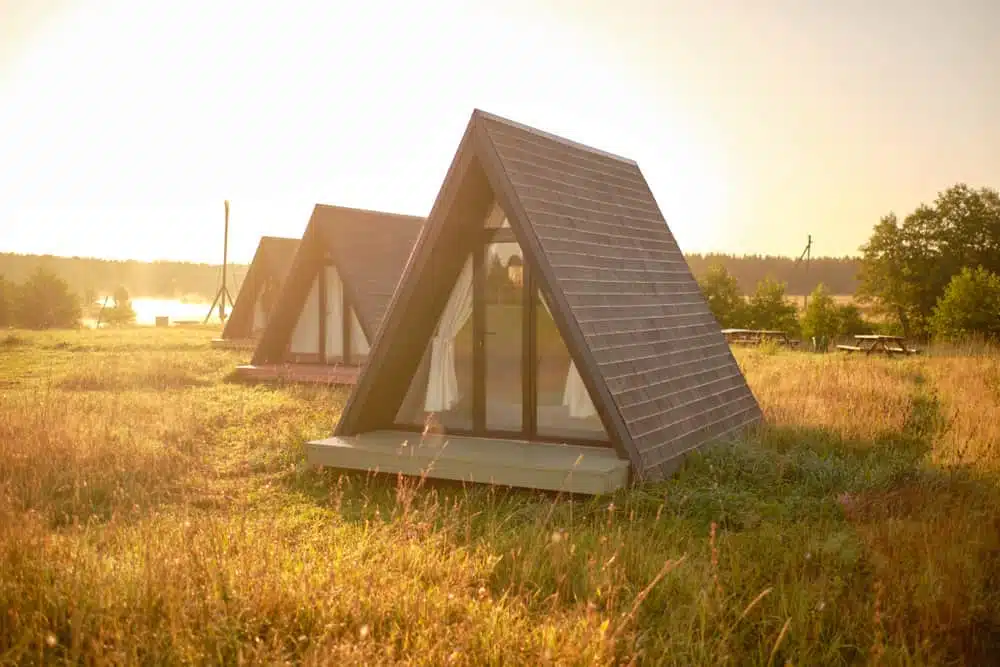A family-run farm in North Yorkshire is expanding into the glamping sector, adding a new revenue stream through luxury outdoor accommodation.
The Ellis family’s farm in Minskip, operating for four generations, is now home to a high-end yurt retreat designed for couples seeking rural getaways with added comfort.
Rob and Rachel Jamieson, who manage the farm, are launching the venture as part of a diversification strategy that aligns with broader trends in the outdoor hospitality industry. The move reflects the growing popularity of experiential, nature-based accommodations among travelers seeking alternatives to traditional lodging.
The new 18-foot yurt includes a king-sized bed, a wood-fired hot tub, and an outdoor pizza oven. While the amenities cater to guest comfort, the retreat also introduces an unusual feature—a group of runner ducks that have already become part of the guest experience.
“Our runner ducks have become the unexpected stars of the show,” said Rob Jamieson in a report by Harrogate Advertiser. “Imagine unwinding in the hot tub with a glass of something lovely and being thoroughly amused by their comical waddling and inquisitive nature – it’s better than any reality TV.”
For outdoor hospitality operators, the development serves as a case study in how small landowners are capitalizing on unused farmland and consumer interest in off-the-beaten-path accommodations.
The Jamiesons are leveraging their existing resources—including a vegetable garden and flower patch—to create a value-added experience for guests, integrating agritourism into their model.
The retreat’s location provides proximity to local attractions such as The Wild Swan, a village pub, and Yolk Farm, known for its fresh produce—further reinforcing the appeal of locally-rooted experiences.
“Diversifying into glamping allows us to share the beauty of this corner of Yorkshire with a new audience while building a sustainable future for our family business,” said Rachel Jamieson.
The couple brings prior hospitality experience through their ownership of Little Hideaways holiday cottages in Northumberland, positioning them to manage the operational demands of high-end rural stays.
With bookings already coming in ahead of the official launch, the project highlights an opportunity for other small-scale operators to consider low-density, high-appeal accommodations as a way to diversify income and increase year-round viability in the outdoor hospitality space.


